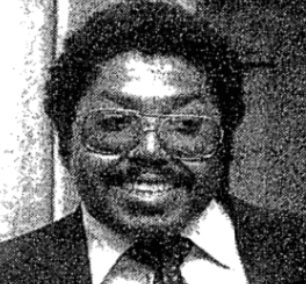 The New York Times/John Sotomayor On July 8, 1972, Laureano Rosario was stabbed to death outside his home in the South Bronx, New York.
Rosario’s 18-year-old nephew, Terrence Ferrer, was arrested and charged with his murder on August 27, 1972. Police also arrested Ferrer’s mother, Juana, and his aunt, Amelia Harris, as accomplices. Harris was Rosario’s common-law wife. Both women were charged with manslaughter. Harris confessed that she had participated in Rosario’s killing following a family squabble. Ferrer denied that he had been present when the crime was committed, and the available records don’t indicate why he came under police suspicion.
In November 1973, Ferrer was tried in the Bronx Supreme Court at a joint trial with his mother and aunt. The three defendants were all represented by the same defense attorney. Bronx District Attorney Burton Roberts initially prosecuted the case but was replaced by District Attorney Mario Merola before the case went to trial. The state’s case relied on the accounts of two witnesses who testified they had seen the killing from their apartment windows. The witnesses were not asked to identify Ferrer in the courtroom. Ferrer testified that he was at home in bed when Rosario was killed.
Ferrer was convicted of second-degree murder and possession of a weapon on November 14, 1973 and sentenced to 15 years to life in prison. His mother and aunt were each convicted of first-degree manslaughter and received indeterminate sentences of up to seven years.
Ferrer spent his years in prison furthering his education, receiving a bachelor’s degree in social science, a master’s degree in American labor studies, and a legal research certification, with the goal of becoming an attorney. His conviction was affirmed on appeal in 1978.
In 1981, Ferrer’s father hired attorney Irving Cohen, who became convinced of Ferrer’s innocence. Cohen filed a second appeal on the basis that Ferrer was never advised that his trial attorney’s representation of his codefendants created a conflict of interest. In 1984, the Appellate Division of the New York State Supreme Court found that it was improper for one attorney to handle all three cases without advising the defendants of the potential conflict of interest. The court reversed Ferrer’s conviction on January 24, 1984 and ordered a retrial. His mother and aunt had already completed their prison sentences by this time.
On May 31, 1984, pending his retrial, Ferrer was released from prison on his own recognizance by Bronx Supreme Court Justice Burton Roberts, the former district attorney who had originally prosecuted his case. District Attorney Merola offered Ferrer the option of pleading guilty as a youthful offender with a sentence of time served. As a youthful offender, Ferrer would not technically have been considered a felon if he accepted the plea. Ferrer turned down the offer. “From the beginning and for all eternity, I am innocent," Ferrer stated. “I’m looking for vindication. I want the ability to take my own life in my own hands, and I don’t think I can do that with a record.”
Ferrer did not testify at his retrial in the Bronx Supreme Court. One of the two eyewitnesses from the original trial was called to testify for the prosecution. But when
asked if he could identify the killer in the courtroom, the witness looked directly at Ferrer and said, “I don’t know the man from a housecat.” The jury found Ferrer not guilty on May 15, 1986.
On January 7, 1987, Ferrer filed a claim against the State of New York under a new law enacted to compensate persons wrongfully convicted and imprisoned by the state. The law required a claimant to prove by clear and convincing evidence that he did not commit any of the acts charged. The state filed a motion to dismiss Ferrer’s claim, arguing that the statute did not apply in Ferrer’s case because his conviction had been reversed on the basis of ineffective assistance of counsel. The court rejected the state’s argument in this case of first impression and found that provided there was a retrial and acquittal, the claim could go forward under the statute.
On June 13, 1990, a judge in the New York Court of Claims awarded Ferrer $1.56 million. The state appealed this award, and the parties ultimately settled, with the state agreeing to pay Ferrer $1.2 million.
Still committed to his goal of becoming an attorney, Ferrer graduated from Cleveland State University’s Cleveland-Marshall College of Law in May 1995. Less than two years later, at the age of 43, Ferrer died of a heart attack on April 5, 1997.
- Meghan Barrett Cousino |